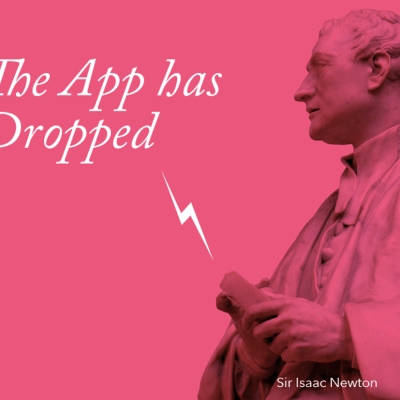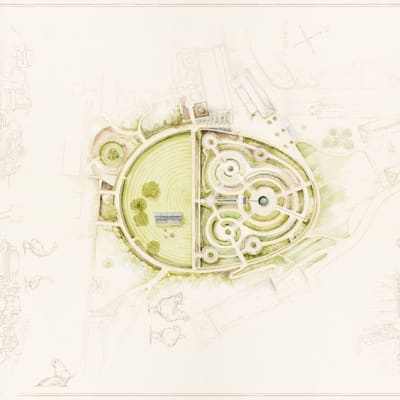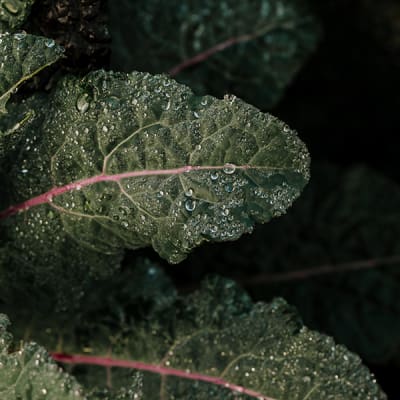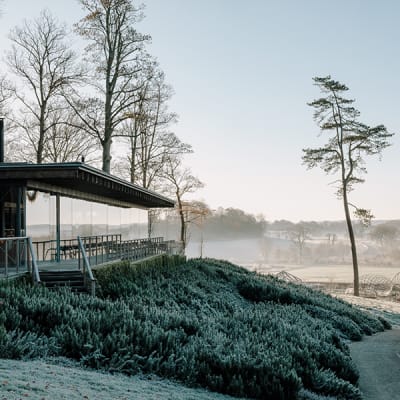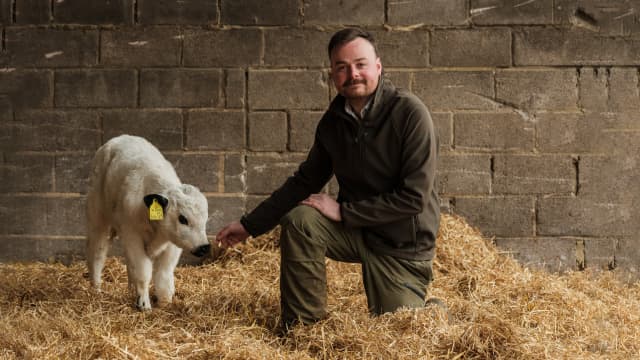
We caught up with Farm Manager, Cameron Knee, to talk Easter events, perks of the job and how turning the cows out into the field for summer results in a joyful dance.
Q. Can you tell us a little about your role at The Newt?
A. I’m Farm Manager for the working farm, which covers hundreds of acres altogether. We have a herd of 300 British White pedigree cattle, 150 Dorset Down sheep and 500 acres of arable land.
Q. What might a typical day look like for you?
A. I’ll meet our team of six first thing in the morning and talk through what needs doing and chat through any observations from the previous day. I’ll usually head into the office for emails, ordering and paperwork and then in the afternoon, if there’s a big job, such as sorting cattle, I’ll give the team a hand. My usual day is a mix of farm planning, paperwork and spending time out and about on the land.
Q. Why is spring such an important time of year on the farm?
A. Our main calving block takes place in spring, with the majority of calves born over the next month. We’ll calve again in November. We’re about to start lambing and planting 150 acres of spring crops. We grow winter and spring barley for the cows, heritage wheats to grind into flour for the Bakery and field beans which are combined and used as a protein source to feed the cattle.
There’s also lots of grass work to do; we roll, harrow and aerate the grass as we move into spring/summer. This levels it out, removes dead grass, allows better drainage and encourages new growth.
Q. What’s your favourite part of the job?
A. I love it when the sun’s out and I’m driving around the estate, checking livestock and the crops in the lead up to Harvest. The long summer days make the wet winter work worth it.
Q. Any downsides?
A. Wet days and dealing with escaped livestock!
Q. Can you tell us about The Newt’s farming practices…
A. We farm regeneratively with no artificial fertilisers or chemicals and minimise medicine usage. Improving the biodiversity of the estate and the land is key to everything we do.
Q. Any fun facts?
A. We have the biggest British White herd in the world, with 300 cattle, ensuring this rare breed is well and truly brought back from the brink of extinction of 50 or 60 years ago.
Q. Can you tell us a little about the upcoming Meet the Farmer event at Easter?
A. The ewes and lambs will be in the gardens for Easter Weekend, and we’ll be talking visitors through lambing and giving members a chance to ask questions. If all goes well, the lambs will be feeding by themselves.
Q. Where can members and hotel guests look out for our farmyard residents on the estate?
A. The sheep and cattle can be seen grazing in front of the house and those who enjoy walking the footpaths across the estate will be able to see our lovely and friendly British White cows grazing the rolling hills above Castle Cary.
Q. Anything else visitors might like to know?
A. We’re so reliant on the sun at this time of year, so we’re desperate for it to stay dry. We turn our cows out for summer in two weeks’ time: that’s always a lovely time of year as they do a little happy dance as they come out into the field.
For 2023, all the calves’ names start with the letter ‘A’ – Anna, Amber, Ace, Amy and so on – so visitors can keep an eye out for the latest additions to the herd.
Our Meet the Farmer lamb feeding talks take place over 7 -10 April for Easter Weekend, from 10.30-11.30am. Entry for Easter Weekend is included in Newt Membership.
Plan Your Visit
